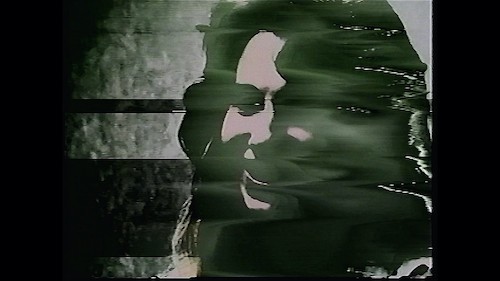Festival starts in
CABLE BOX / CANADA / LOUISIANA PREMIERE

SHORT EXPERIMENTAL
Taking place in an unspecified year in the early 1990s, a night of mindless television channel flipping is slowly interrupted and overtaken by a pirate television signal. A flood of colours emanating from video feedback, warring tribes displayed through a modified oscilloscope, and a flurry of gun violence repeated via luminance keying dominate stations one by one. Abstract imagery through analog video glitch techniques forewarn the passive television viewer that the far-right American political system to come will not be the result of a sudden shift. Instead we will see a rise of increasingly conservative policies followed by a moulding of public perception by broadcast television. As Cable Box progresses, commercials, sitcoms, and nightly news segments begin to highlight the true nature of broadcast television: to serve the financial and neoliberal interests of media conglomerates.
Composed of found footage sourced through hundreds of VHS tapes, Cable Box is faithful to the video-art tradition of turning the analog television signal against itself. Like Nam June Paik and Richard Serra before him, director Rob Feulner (b. 1987) uses broadcast television tools to demonstrate that the television signal controls society for an elite agenda while creating thematic links to our current Internet landscape.
Director's Biography:
Rob Feulner is a video artist hailing from Montréal, Québec. Armed with a stack of VCRs, circuit-bent machinery, and a disregard for electrical shocks, Feulner dives wrist-deep into open machinery to manipulate tape heads and moving parts, creating a landscape of video tracking errors and glitches used to confront modern political malaise. He also runs the video label Bleu-Nuit Video.
Composed of found footage sourced through hundreds of VHS tapes, Cable Box is faithful to the video-art tradition of turning the analog television signal against itself. Like Nam June Paik and Richard Serra before him, director Rob Feulner (b. 1987) uses broadcast television tools to demonstrate that the television signal controls society for an elite agenda while creating thematic links to our current Internet landscape.
Director's Biography:
Rob Feulner is a video artist hailing from Montréal, Québec. Armed with a stack of VCRs, circuit-bent machinery, and a disregard for electrical shocks, Feulner dives wrist-deep into open machinery to manipulate tape heads and moving parts, creating a landscape of video tracking errors and glitches used to confront modern political malaise. He also runs the video label Bleu-Nuit Video.
Website Design & Internet Marketing by Teamwork Solutions

